The Skin Barrier: Your Body’s First Line of Défense
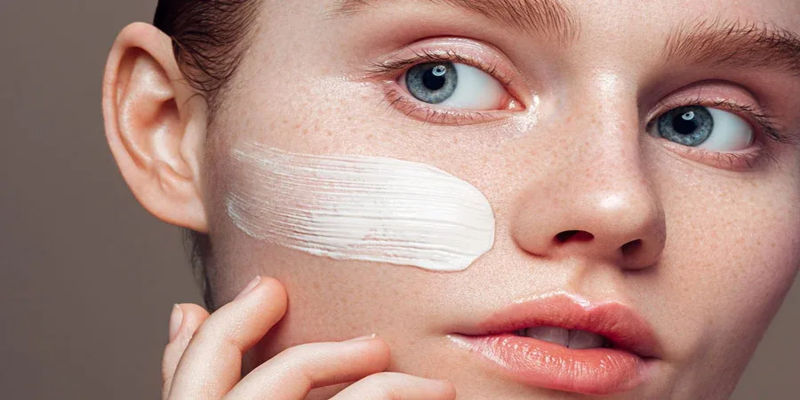
When thinking of skincare, we tend to think of glow, hydrator, or anti-aging. For every serum and moisturizer, it is+ critically important yet frequently omitted aspect of skincare. This outer layer of skin is responsible for protecting your skin from irritants and microorganisms, and also for keeping moisture in. Therefore, it’s important to inform yourself on what the skin barrier does and how to care for it, for both beauty and skin health purposes. When it is damaged, this can lead to sensitivity, dryness, breakouts, or irritation, so protecting and restoring it should always be a focus in your skincare. we will talk about what the skin barrier is, why it’s important, what depletes it, and finally, how to restore it. We will also provide some easy, effective tips to keep your skin barrier strong, because that’s where healthy skin starts the surface!
Table of Contents
- What Is the Skin Barrier
- What Damages the Skin Barrier
- How to Repair the Skin Barrier
- Skin Conditions
- When to See a Dermatologist
What Is the Skin Barrier
The outer layer of the skin is called the skin barrier or the stratum corneum, mostly corneocytes (dead skin cells) and lipids (fats), arranged in a brick-and-mortar structure–the corneocytes act as the bricks, while the lipids serve as the mortar holding the whole together. Therefore, this layer is extremely important in protecting the skin from harmful external aggressors like bacteria, pollutants, UV radiation, and allergens. It also protects against trans epidermal water loss (TEWL), keeping hydration locked in. It also supports the skin’s immune function as the first line of defence for the body. When your skin is healthy, you will notice soft, even-toned, and balanced skin. As the skin barrier gets compromised, the signs appear: redness, sensitivity, flakiness, dullness, and breakouts. Therefore, achieving and maintaining a strong and resilient skin barrier is imperative for skin health longevity
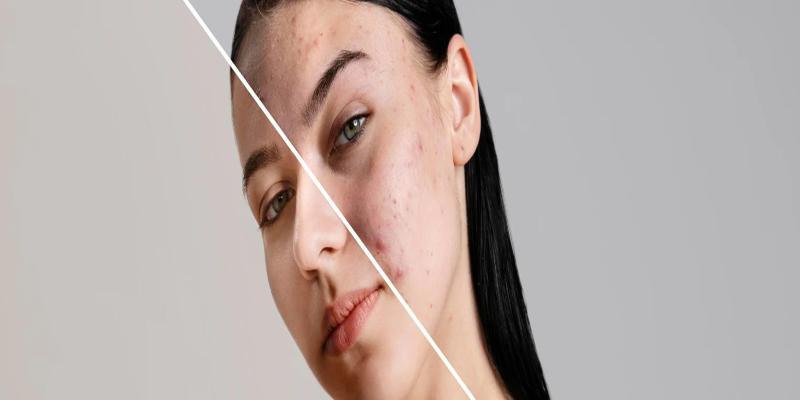
What Damages the Skin Barrier
There are many potential culprits behind a weakened it. Here are some of the most common:
1. Over-Cleansing
Using harsh cleansers or washing your face too frequently can strip away the skin’s natural oils, weakening the barrier.
2. Excessive Exfoliation
While exfoliation can help remove dead skin cells, too much of it—especially with physical scrubs or strong acids—can erode the protective layer.
3. Environmental Factors
Pollution, UV radiation, wind, and extreme temperatures all place stress on the skin.
4. Incorrect Skincare Products
Products with high alcohol content, strong fragrances, or allergens can cause irritation and inflammation, particularly for sensitive skin.
5. Underlying Health Conditions
Skin disorders like eczema, psoriasis, and rosacea are often linked to a compromised barrier.
6. Aging
As we age, the skin produces fewer lipids, making it harder to maintain a healthy barrier.
Signs Your Skin Barrier Is Damaged
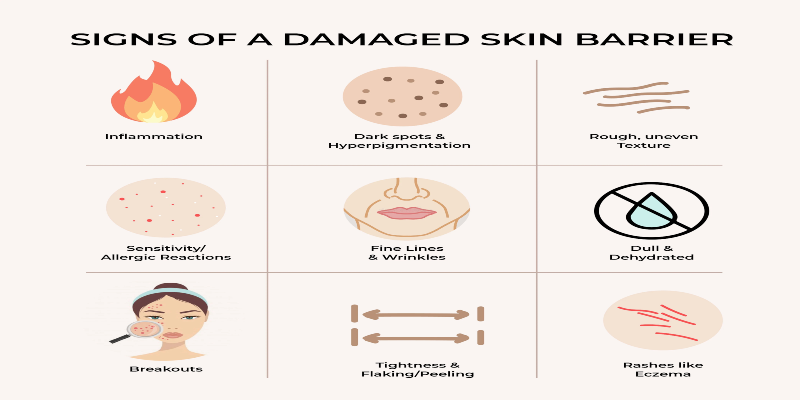
Some tell-tale signs include:
-
Persistent dryness or flakiness
-
Increased sensitivity or stinging when applying skincare
-
Redness or inflammation
-
Breakouts or skin conditions like eczema
-
A “tight” feeling after washing
These are your skin’s SOS signals—it’s time to hit pause and go back to basics.
How to Repair the Skin Barrier
- Restoration of the damaged skin takes time, patience, and a gentle hand. First, simplify your skincare routine: a mild cleanser, a hydrating moisturizer, and some sunscreen. You have to avoid actives like retinoids, other AHAs, or vitamin C until the skin has settled down.
- Second, choose repairing ingredients: ceramides to replenish lost lipids, niacinamide to reduce inflammation, and hyaluronic acid for hydration.
- Fatty acids and panthenol encourage healing and bolster the skin. Besides, during flare-ups, keep away from irritants like alcohol-based products, synthetic fragrances, and essential oils.
- Also, practice gentle cleansing, using lukewarm water and a non-stripping cleanser. Sleekly pat your skin dry with a soft towel, rub-a-dub, no.
- Next, hydrate from within: drink lots of water, eat foods rich in omega-3 fatty acids such as walnuts and salmon. Lastly, wear sunscreen daily as UV rays cause serious damage it
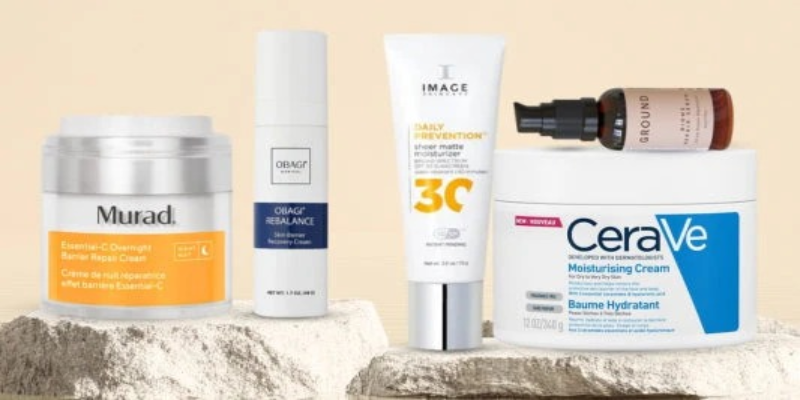
Skin Conditions
First and foremost, when the skin is compromised, various skin conditions can emerge. For instance, eczema often flares up due to increased trans epidermal water loss and reduced lipid levels. Likewise, psoriasis can worsen because the damaged barrier allows irritants to penetrate more easily. Moreover, acne may become more inflamed, as bacteria and excess oil interact with a weakened surface. In addition, rosacea tends to intensify, since the skin becomes more reactive to environmental triggers. Furthermore, sensitivity and redness frequently appear as early signs of barrier dysfunction. As a result, chronic irritation develops, making it harder for the skin to heal. Meanwhile, fungal infections can also occur more readily, given the reduced defence against pathogens. Consequently, maintaining a healthy skin barrier is essential not just for cosmetic reasons but for overall dermatological health. Therefore, addressing the root cause barrier repair—should be a top priority in managing these conditions effectively.
When to See a Dermatologist
To begin with, while minor skin issues often improve with home care, some signs should prompt a visit to a dermatologist. For example, if your skin remains persistently dry, red, or irritated despite using gentle products, professional evaluation becomes necessary. In addition, when over-the-counter treatments fail to improve acne, eczema, or rashes, expert guidance ensures proper diagnosis and treatment. Moreover, sudden changes in skin texture, colour, or sensitivity may signal underlying conditions requiring medical attention. Similarly, if you notice unusual moles or growths, early detection by a dermatologist is crucial for preventing serious complications. Furthermore, chronic itching, burning, or peeling may indicate infections or inflammatory diseases. Consequently, delaying professional care could lead to worsening symptoms and more intensive treatment later. Therefore, for persistent, worsening, or unclear skin issues, timely consultation with a dermatologist is not only wise but essential. Ultimately, expert intervention supports long-term skin health and peace of mind.
FAQ’S
1. What is the skin barrier
The skin barrier, also known as the stratum corneum, is the outermost layer of the skin that protects against moisture loss, irritants, and harmful microorganisms.
2. Why is the skin important
It helps retain hydration, prevents external damage, and keeps skin healthy. A strong barrier reduces the risk of sensitivity, dryness, and infections.
3. How do I know if my skin is damaged
Common signs include dryness, redness, itching, sensitivity, flaking, and breakouts. Skin may feel tight, sting, or burn when applying products.
4. What causes damage to the skin
Over-cleansing, harsh exfoliation, sun exposure, pollution, harsh skincare products, and certain skin conditions can all weaken the barrier.
5. How long does it take to repair a damaged skin
With proper care, a mildly damaged barrier can improve in a few days to a few weeks. More severe damage may take longer.
6. Can I still exfoliate if my skin is compromised
It’s best to avoid exfoliation until the skin has healed. Once your barrier is strong again, use gentle exfoliants no more than 1–2 times a week.
7. Which ingredients support the skin
Look for ceramides, hyaluronic acid, niacinamide, glycerine, panthenol, and fatty acids. These help repair and strengthen the barrier.
8. Is sunscreen important for the skin
Yes, UV radiation can weaken the skin barrier. Daily sunscreen protects the skin and supports long-term barrier health.
9. Can diet affect my skin barrier
Absolutely. A diet rich in omega-3 fatty acids, antioxidants, and hydration supports skin repair and overall barrier function.
10. When should I see a dermatologist about my skin
If symptoms like redness, irritation, or peeling persist despite gentle care, consult a dermatologist to rule out underlying conditions.

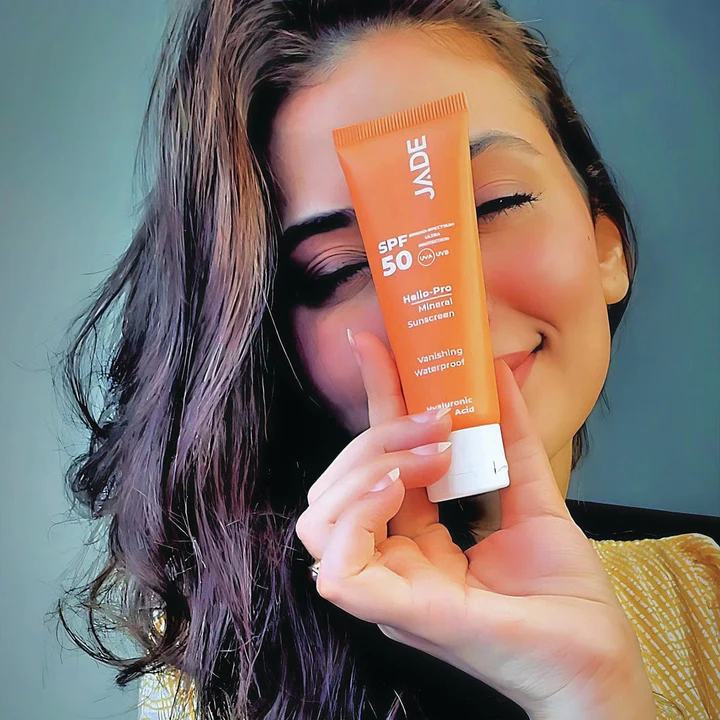
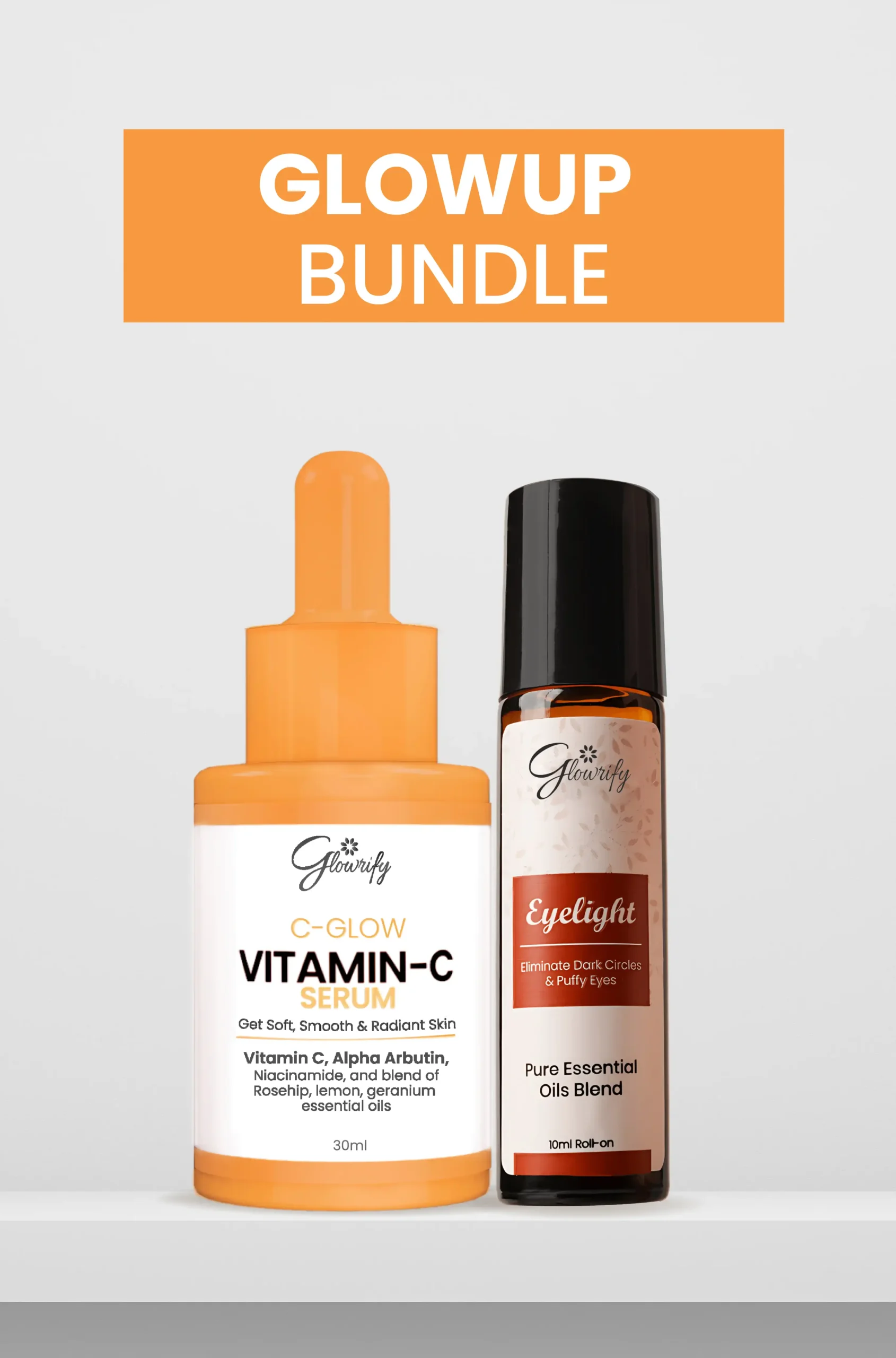
[…] of relying on exclusive skincare products that may contain harsh elements, why not turn to simple how to naturally brighten, natural medicines you can make right at […]